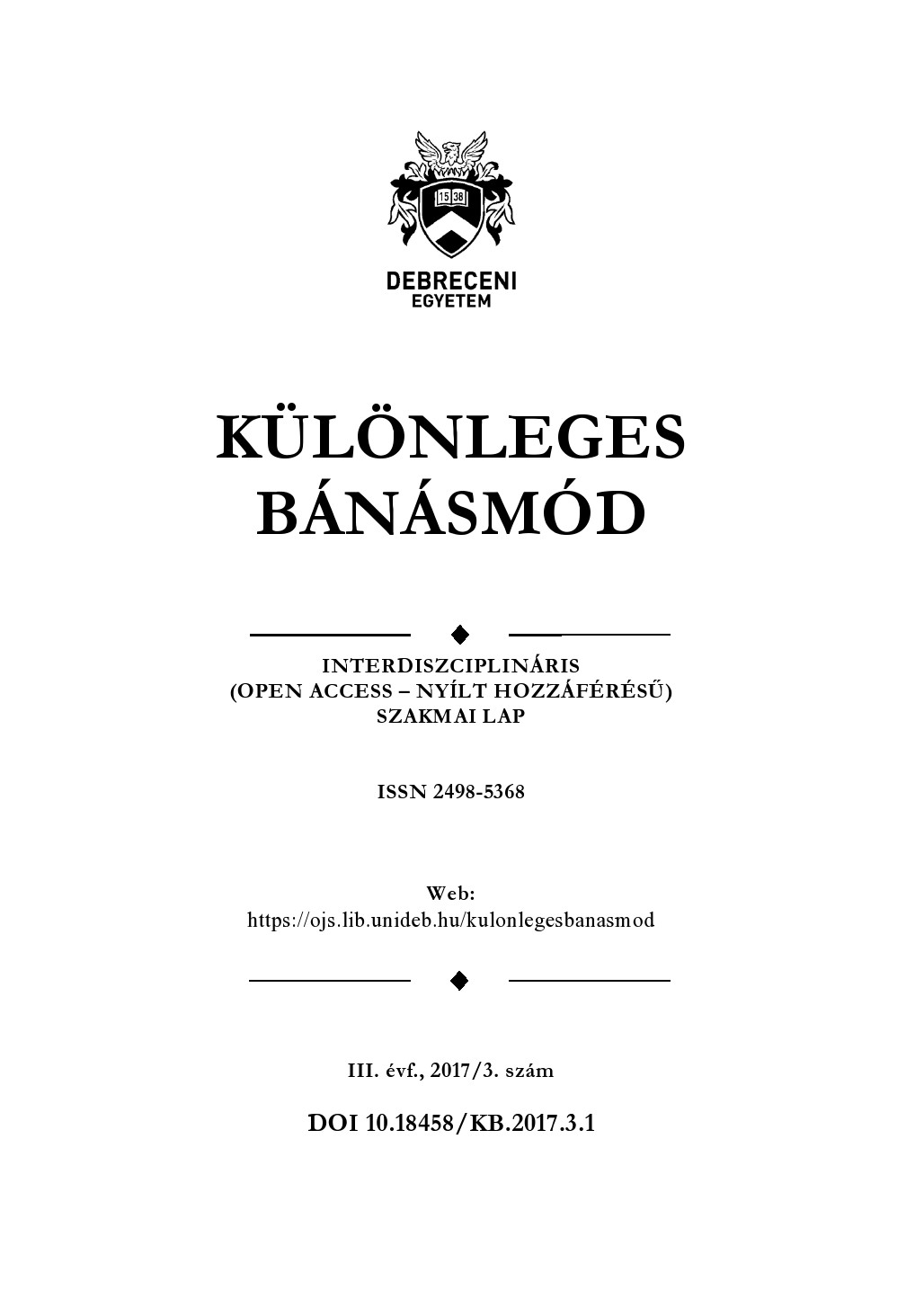THE IMPACT OF CONTINUOUS AND DIFFERENTIATED EDUCATION FOR FORMING OF COMMUNITY ATTITUDE IN STUDENTS OF SENIOR CLASSES
Authors
View
Keywords
License
Copyright (c) 2017 2017

This work is licensed under a Creative Commons Attribution-NonCommercial-NoDerivatives 4.0 International License.
How To Cite
Abstract
Background and objectives: In longitudinal research (2006–2010) we examined the progression of upper elementary school students’ self-assessment, self-image, attitude toward community, and change in their anxiety level in order to find out to what degree carefully planned and continuously differentiated education influence these traits of students’ behaviour. In this present study, we address the change in their attitude toward the community. Method: We used the measurement tool developed by Hunyadyné and modified by Tóth for measuring the attitude toward the community (Appendix 1). Hypothesis: We assumed that as a result of differentiation the upper elementary school students’ attitude toward community will progress earlier and more effectively in the pilot than the control group (school community, the society; the class’ cohesion force, self-government’s role and competence, the function of public opinion, potential sociometric relation within the class, group activities). Results: The controlled and planned differentiated development made the areas of attitude toward community advance more in the pilot group than in the group going under only scarce differentiated development. We experienced significant differences in the scales of relation to the broader community, group activity, and class cohesion. Conclusions: Results justify that appropriate differentiated development has got an advantageous impact on attitude toward the community.


 https://doi.org/10.18458/KB.2017.3.7
https://doi.org/10.18458/KB.2017.3.7